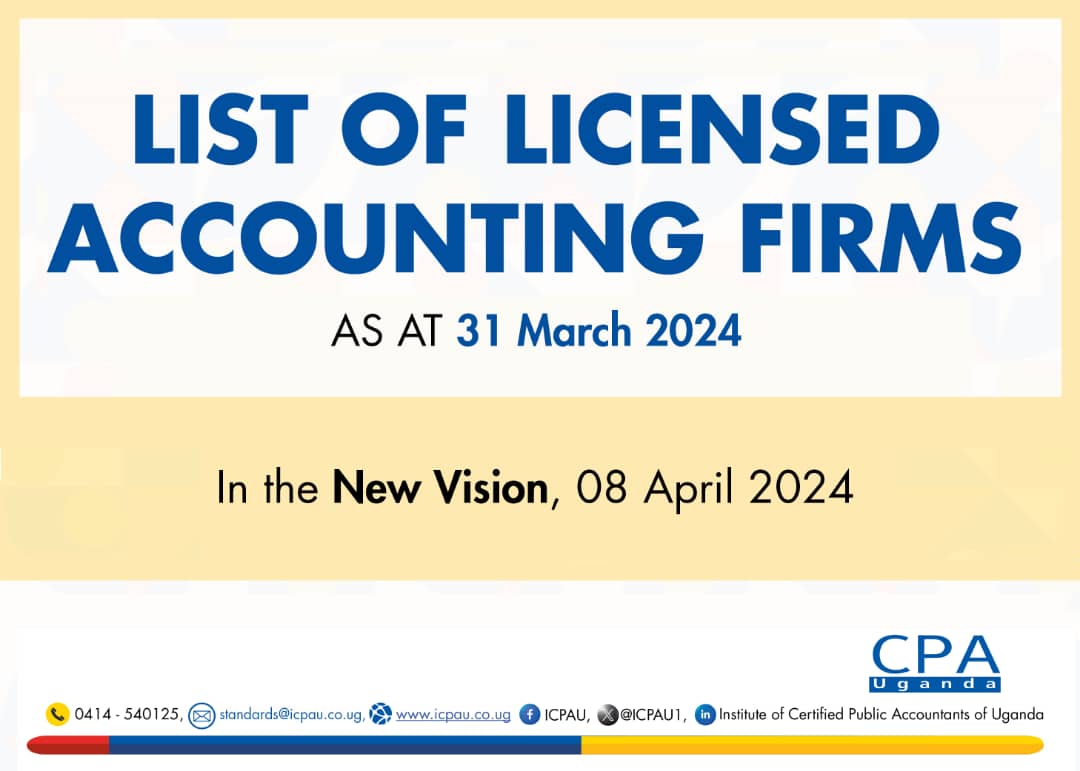By Nancy Akullo
Head of Communications
Institute of Certified Public Accountants of Uganda
Organisations and individuals often require support with accountancy services like financial reporting, audit and assurance, tax advisory, financial management, cash flow management, risk management and transaction services, restructuring and insolvency, and general business advisory, among others.
The temptation is to seek these services from any individual or firm which may appear to possess the required competencies whereas not. Financial resources play a major role in this decision. But did you know? According to the Accountants Act, 2013, any individual who offers accountancy services is deemed to be practising accountancy and they must possess a valid Certificate of Practice and a firm licence issued by the Institute of Certified Public Accountants of Uganda (ICPAU). Furthermore, the law requires that Certificates of Practice and licences are renewed annually. There are penalties for non-compliance.
The law does not apply to audit services only, but all accountancy services. ICPAU issues two categories of Certificates of Practice: the first category is for all types of accountancy services including audit, while the second category is for non-assurance services like accounting and bookkeeping, advisory, valuation, tax consultancy, company secretarial, insolvency and financial planning among others. This implies that any individual who intends to offer accountancy services must obtain the relevant licence.
So, why must providers of accountancy services possess valid Certificates of Practice and firm licences?
Consumer protection. Practising accountants are bound by the International Code of Ethics for Professional Accountants. This ensures that members of the public are protected in terms of integrity, objectivity, professional competence and due care, confidentiality, and the professional behaviour of the practitioner.
Professional competence. The minimum requirements for a Certificate of Practice are a professional accountancy qualification, ICPAU membership and three years of relevant experience. This ensures that practising accountants possess both the technical and practical competencies required for accountancy services.
Quality assurance. In addition to licensing, accounting firms are required to undergo periodic audit quality reviews performed by ICPAU. The purpose of the quality reviews is to ensure conformance with the International Standards on Audit. To this end, members of the public can trust the quality of work performed by licenced firms.
It is important to note that work presented by non-licensed firms is inadmissible for tax and other legal purposes. Such practices are not regulated, and the organisations or individuals that deal with them will not be able to seek redress from ICPAU in case of any disputes.
Do not fall prey to quacks. Seek the services of a licensed accounting firm. A list of accounting firms licensed to offer accountancy services in 2024 will be published in the New Vision on 8 April 2024 and the Uganda Gazette on 12 April 2024. The list will also be accessible via the ICPAU website, www.icpau.co.ug





